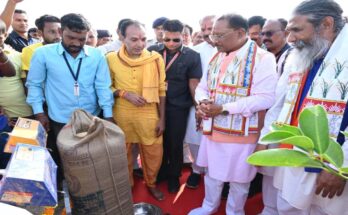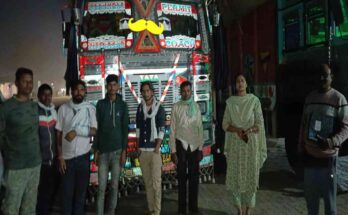New Delhi: August 21, 2020. In the backdrop of a controversy over a WSJ report that Facebook’s top public policy executive in India had opposed applying hate-speech rules to BJP politicians, the social media giant Friday insisted that it is a “non-partisan platform” and that it will continue to remove content posted by public figures in India that are in violation of its standards.
“Facebook is and always has been an open, transparent and non-partisan platform where people can express themselves freely. Over the last few days, we have been accused of bias in the way we enforce our policies. We take allegations of bias incredibly seriously, and want to make it clear that we denounce hate and bigotry in any form,” Facebook India Vice President and Managing Director Ajit Mohan said in a blog post.
Last week, The Wall Street Journal reported that Facebook’s top public policy executive in India, citing business reasons, didn’t apply “hate-speech rules” to at least four individuals and groups linked with BJP who were “flagged internally for promoting or participating in violence”. It reported that Facebook India’s Public Policy Director Ankhi Das told staff members that “punishing violations” by BJP politicians “would damage the company’s business prospects in the country, Facebook’s biggest global market by number of users”.
Asserting that Facebook is strongly governed by its Community Standards, Mohan said that the social media platform has an impartial approach to dealing with content. “We enforce these policies globally without regard to anyone’s political position, party affiliation or religious and cultural belief. We have removed and will continue to remove content posted by public figures in India when it violates our Community Standards,” he said.
On Thursday, the Shashi Tharoor-led Parliamentary panel on Information Technology Thursday summoned Facebook on September 2 to discuss the issue of alleged misuse of the social media platform. Besides representatives of Facebook, the committee has also asked representatives of the Ministry of Electronics and Information Technology to remain present on September 2 to discuss “safeguarding citizens’ rights and prevention of misuse of social/online news media platforms including special emphasis on women security in the digital space,” PTI reported.
Meanwhile, BJP MP and member of the standing committee on Information Technology Nishikant Dubey wrote to Lok Sabha Speaker Om Birla, seeking removal of Congress MP Shashi Tharoor as chairman of the standing committee.
Earlier this week, the Congress party also wrote a letter addressed to Facebook CEO Mark Zuckerberg, asking him to set up a time-bound “high-level inquiry” into its leadership in India and their operations and put in place a new team until completion of the internal probe. In the letter to Zuckerberg, Congress general secretary in charge of organisation KC Venugopal asked Facebook to publish “all instances of hate speech posts since 2014 that were allowed on the platform”.
Here’s the full text of Ajit Mohan’s statement
Facebook is and always has been an open, transparent and non-partisan platform where people can express themselves freely. Over the last few days, we have been accused of bias in the way we enforce our policies. We take allegations of bias incredibly seriously, and want to make it clear that we denounce hate and bigotry in any form. We take this opportunity to offer clarity on policy development and enforcement at Facebook.
Our Community Standards define what stays on our platform and are enforced globally.
First and foremost, we want to make it clear that we denounce hate in any form. Our Community Standards, which outline what is and isn’t allowed on Facebook, have clear and very detailed policies against hate speech, which prohibit attacks on people on the basis of protected characteristics, including religion, ethnicity, caste and national origin.
We do not develop these policies alone. We follow an open and transparent process around policy development and rely on the expertise of both internal teams and external voices — our community, experts and organizations outside of Facebook such as academics, safety and human rights NGOs, and activists — to make sure we understand different perspectives on safety and expression, as well as the impact of our policies on different communities.
These policies are ever evolving to take into account the local sensitivities especially in a multicultural society such as India. An example is the inclusion of caste as a protected characteristic in our global hate speech policy in 2018.
We uphold the principles of democracy. This also reflects in our organizational set up – like a truly diverse organization, our employees represent a varied political spectrum who have either served in many administrations or have political experience and take immense pride in being active contributors to public service. Despite hailing from diverse political affiliations and backgrounds, they perform their respective duties and interpret our policies in a fair and non-partisan way. The decisions around content escalations are not made unilaterally by just one person ; rather, they are inclusive of views from different teams and disciplines within the company. The process comes with robust checks and balances built in to ensure that the policies are implemented as they are intended to be and take into consideration applicable local laws.
Removing hateful content from public figures
Many questions have been raised specifically about enforcement of our policies around hate speech. There is no place for hate speech on our platform. We have an impartial approach to dealing with content and are strongly governed by our Community Standards. We enforce these policies globally without regard to anyone’s political position, party affiliation or religious and cultural belief.
We have removed and will continue to remove content posted by public figures in India when it violates our Community Standards.
Decisions about designating people or groups as “dangerous individuals or organizations” are different – these are based on a combination of signals and are made by our dangerous organizations team who have deep expertise in terrorism and organized hate and pay attention to global and regional trends.
Individuals who are designated as “dangerous” under our policies are removed from our services altogether, and all praise, support and representation of them is taken down, as well. Because the penalty associated with designation is so severe, it’s important that our analysis is comprehensive and detailed, and that our process applies consistently and fairly around the world.
In addition to the external input that informs our designation process, we also solicit input from cross-functional teams internal to the company when we’re making decisions about individual designations. These decisions cannot and are not made unilaterally by just one person; rather, they are inclusive of different views from around the company, a process that is critical to making sure we consider, understand and account for both local and global contexts. And the process is dynamic and ongoing based on newly available information or activity.
We’ve made progress on tackling hate speech on our platform, but we need to do more
We have made significant progress in removing hate speech and other harmful content over the past few years. Last week, we shared our latest enforcement numbers, reporting that we removed 22.5 million pieces of hate speech content in the second quarter of 2020 (up from just 1.6 million pieces of hate speech removed in the last quarter of 2017).
Still, we know this work is never over, which is why we will continue to invest in our efforts to combat hate speech on our services. We welcome the opportunity to engage with all parties – political or otherwise – who want to understand our content policies and enforcement more.
Facebook’s commitment to India and its people is unwavering. With some of our largest thriving communities in this country, we recognize our responsibility to keep our platforms to be places where people feel empowered to communicate safely. Our aim is to be an ally for India where our platforms preserve the pluralistic character of a democracy by offering the freedom for people to express themselves and for entrepreneurs to build new things while also protecting society from broader harm.




